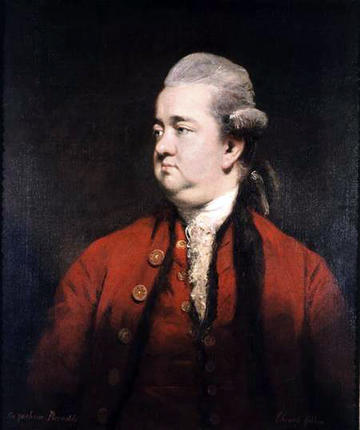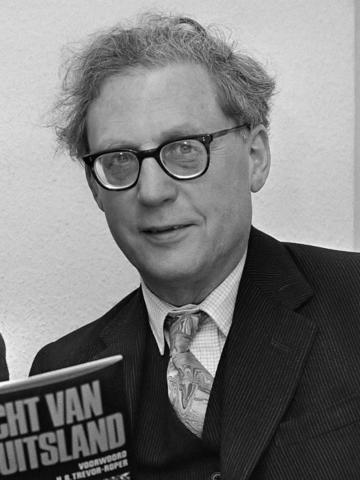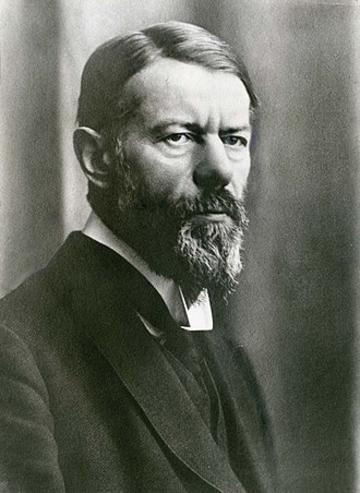In Conversation with Peter Ghosh
Emily Jones and James Kirby in conversation with Peter Ghosh, Professor of the History of Ideas and Fellow at St Anne's College, Oxford, on the occasion of his retirement.
It could be said that you started your career as a historian of politics and then became a historian of ideas. Why did you make that transition?
I did a variety of DPhil torsos on politics, finance, & the Eastern Question, but I cannot accept the description ‘historian of politics’. The courses that made the most impression on me as a student – and by an enormous distance – were the historiography papers in the one-term Trevor-Roper Prelim (Gibbon & Macaulay, Burckhardt, Bede). I took it for granted even as a student that these were history of ideas papers (aided by a schoolmaster who told me that they were unusual but interesting), although Trevor-Roper himself was only half way to that position. (See ‘Hugh Trevor-Roper and the history of ideas’, where I was able to consult the lecture texts that I had heard as a student.) What I could not envisage was taking up such a subject as a doctoral thesis, so my choice of thesis subject (1976) was an entirely dispassionate attempt to identify a “gap” in the voluminous coverage of Gladstone & Disraeli, where modern British political history remained the most obvious location for prestigious doctoral work in Oxford. The various subjects I evolved were extremely interesting and had there been anything like the kind of doctoral supervision that exists today, I think I would have finished at least one respectable piece of work. But there was none. But in any case the first article I ever published was a history of ideas piece, ‘Gibbon’s Dark Ages’, an instinctive return to a favourite subject written in my first term in post at St. Anne’s (1981).

Portrait of Edward Gibbon, c. 1779.
However, there was also a bridge from Disraeli to the history of ideas supplied by Disraeli’s own writings. A fundamental agenda here for me was the interrelation between ideas and politics in Disraeli’s career, and the desire to show that his ideas had been important to him throughout his entire life. Hence that the view of him as just a chancer was clearly mistaken. So the first seminar paper I ever gave to the Modern British History Seminar in the (classically beautiful) Old Library of All Souls was entitled ‘Disraeli: Intellectual in Politics’ (c.1983?). But while I realised that Disraeli’s ideas were important, I worked outwards and backwards from his mature political statements as the thesis agenda suggested. What I did not do, as a beginner, was take ideas as a staring point, and so amongst a great number of typescripts there is nothing about the relationship between Disraeli’s ideas and authentic ancient constitutionalism. (For example, I am shocked today to think that I never thought to assess the place of Isaac D’Israeli’s Comentaries on… Charles I.)
Still, disinterring the constitution was a next step. (This was fading from view when I took History A level, but I had read Gash, Reaction and Reconstruction in English Politics — the one place where he accepted that there was a political landscape wider than Sir Robert Peel.) Because I am a systematic thinker, I gave a seminar paper at Cambridge c.1985 at the invitation of Jon Parry on ‘The place of finance in Gladstonian politics’, which identified (surprise, surprise) the ancient constitution as the central agendum of Victorian party politics, with finance and foreign policy as peripheral, regardless of their substantive importance. So when I gave up lecturing on Disraeli & Gladstone as two separate lecture courses (c.1990), I moved on to lecture on ‘The Politics of the Constitution’ c.1688/1815-1924 and I have given versions of this (circus arrangements permitting) ever since. But Disraeli’s eccentric ideas about history and the constitution were marginal here. In short, there was a key component in my picture of him that was missing — and it occurs to me in 2023 that this may have been a subliminal reason why, having accepted the commission (1994), I never wrote the ODNB article on him. Anyone with an ounce of sense would say I was mad, and I will not argue the toss with them.
Is there something you have changed your mind about as a historian over the course of your career? If so, was your mind changed by your own research, by reading other scholarship, or by something else?
I think this falls under two headings: (1) discovering errors of fact and interpretation, and (2) changes of view about “how to do history”.
(1) I’m not aware of anything badly wrong in anything I have published, though I would be surprised indeed if ‘Citizen or Subject? Michel Foucault in the History of Ideas’ (1998) was not dated by the appearance of substantial new materials since then. When writing Max Weber and the Protestant Ethic: Twin Histories (2014), I was painfully conscious that without access to the complete correspondence I could make bad mistakes. (The letter volume in the collected edition, MWG, that most concerned me was not published until after I had done so.) Luckily, because the letter publication was so lethargic, MWG was always keen to let out highlights in the connected text volumes. So as it turned out there was only one significant statement that I wished I had had to hand – reference available on request – and no significant error arose. On the other hand there is 8 lines on the dating of ‘On Some Categories of Interpretative Sociology’ that is wrong, as I discovered when writing my current Weber book.
Under (2): I believe I have learned rather than consciously changed. One point to make here is that, because of my parentage, I come from a completely blank or absent cultural context. This was compounded by the experience of the Trevor‑Roper Prelim, which prompted an instinctive reflex: that all secondary literature in any area had to be regarded as carrying a detached historiographical component. Thus everything I think about history has had to be constructed from scratch; there have been no instinctive assumptions and tradition was something that had to be recovered from without. So for example, in my doctoral research, I spent the whole of my first term reading Hansard, the whole of the second reading The Times, and then (though not as lengthily) the Economist, just to instruct myself in the sources. (Yet this was the heyday of the Cowlingite mania for high politics studied through private correspondence.) I also spent an entire long vac reading the Saturday Review.
Still, let me cite a more straightforward example of intellectual “progression”. The (to me) extremely important identification of the key criteria which distinguish classical from modern history was something that I worked towards stochastically, starting with a St. Anne’s Domus seminar (to the SCR) c.2000. But I only worked out a full and clear picture when writing a little book called The Idea of History: Renaissance Classicism (c.2017-18).

Hugh Trevor-Roper in 1975.
To which historians do you owe intellectual debts?
As someone who allots such a central place to the history of historical writing, past and contemporary, I believe I have received a great deal from other historians. (Debt isn’t the right word.) I begin with Arnaldo Momigliano’s ‘Ancient history and the historian’, because it posed a question to me when I arrived at St. Anne’s in 1981 which I have since answered: “What constitutes and defines modern history ?” Next, I note the dedicatees of A Historian reads Max Weber, though like Momigliano they provided stimuli rather than specific ideas. I also owe debts to some of my undergraduate teachers at Oxford — above all Peter Brown (the historian of Augustine) and Tim Mason. But the most important debt (better, gift) I owe to another historian is to Ross McKibbin, whose famous paper on gambling I heard when it was first delivered orally c.1974. This impressed me because I had been engaged in placing bets on the horses for one of my elder brothers and I recognised the human reality and potency of what he was saying. But the debt was an act of historiographical recognition rather than anything I could take over for myself. What I was recognising was a great original historical mind — which underlies my writing the profile of Ross in his Festschrift; but gambling has no direct connection to the kind of history I write. There is one qualification to this. I greatly admired his later book Classes and Cultures (1999), because the ‘cultures’ part is an important reminder that everyone has ideas. Of the books I have conceived in my mind, one of the favourites would be a serious study of pop music in 1960s Britain (a central context for me), as a successor to McKibbin. Thus I have always described my work as “the history of ideas” and dislike the more elitist label “intellectual history”.
I admire Quentin Skinner at I believe his full value, but I owe nothing to him or to any mythical “Cambridge school” or indeed a Sussex one. I remember going to John Burrow’s Carlyle Lectures in 1984 (published as Whigs and Liberals). They were not John’s finest hour – David Eastwood and I used to keep a tally of the declining lecture attendance – but they opened with him on top form, joking about the oddity of Oxford having a lecture series on the history of political thought when it was so hopelessly backward in this area. This was my first introduction to this process of mythification, and it will be evident that my own conception of the history of ideas was entirely self-generated: historiographical and Oxonian, Roperian and Momiglianesque. However, if we turn away from historiography to consider social and political theory, then John’s jest had much substance in it. Thus my undergraduate teaching in the compulsory paper on ‘Political, Economic and Social Thought’ was punctuated by questions from my tutor (John Roberts) of the kind: “Now Mr Ghosh, it’s Easter 1916, you’re in the Dublin Post Office, what would Aristotle have said?” To which of course there was no answer. Nor did it inspire a foray into the Cambridge heartland of early modern political thought. (I think my views on Pocock are too well-known to require repeating.)
However, modern social and political theory was interesting. I was “farmed out” for two weeks on Marx and Hegel with Zbigniew Pelczysnki, whose great virtue was that he was not a Cold Warrior like Plamenatz and Popper. Otherwise the thing I most remember about Zbigniew was his gammy leg and his dog, but still in the Long Vac after taking finals (the drought summer of 1976), I read two important books without any attention to the projected thesis on Gladstone & Disraeli that lay ahead. One was Moby Dick edited by Harold Beaver (a German emigré) and the other was the first volume of H.S. Harris, Hegel’s Development: Towards the Sunlight (1972). This enthusiasm resurfaced in my second year as a Fellow at St. Anne’s (winter of 1982-3) when I much enjoyed writing an essay on ‘Hegel on Civil Society: an historical reading of the Philosophy of Right ss.182-256’. (Another “instinctive” production.) This I sent to Charles Taylor and Duncan Forbes, who – without this being their intention – convinced me that by their standards I was ignorant. Hence the essay had served the useful private purpose of self-education, but need not be published.
I would not claim to have had a major interest in political theory at this date, but I would lay claim to an interest in the historic wealth of German Kultur prior to its annihilation by the Nazis, beginning with the Burckhardt Prelim, Trevor-Roper and Harold Schenk (like Beaver, another German emigré). I had been told to read Julien Freund, The Sociology of Max Weber (1966) as an undergraduate, but this simply informed me (as did any book on Weber of this era) that Weber was a founding father of modern sociology. Unsurprisingly, therefore, I did not consider him to be a historical subject and dismissed him from my mind.
Your writing has mainly focused on particular individuals (e.g. Disraeli, Gibbon, Macaulay, Weber) rather than (say) systems, groups or institutions. Was that a deliberate decision or just how things have turned out?
As I have indicated, titles in my bibliography may well look like this, but this is a mistake. I have always been in search of systematic foundations for any subject I have been interested in, and anyone who has been taught a period paper by me – i.e. one where a conceptual framework is of the essence – will know that. Here it must be said that the necessary reciprocal to the cultural “blank slate” and limitless empiricism noted above had to be a stringent conceptual framework. I didn’t need to read Weber on “Objectivity” to be told this, and unlike Weber this has meant seeking out the conceptual schemes framed by historical actors rather than creating them for myself. Hence identification of the ancient constitution as the fundament of British politics across the whole period from its late 16th century invention to the 1960s; the distinction between classical and modern historical writing The Idea of History (publication suspended); the central importance of a correct definition of liberalism in post-1789 political thought etc.
Weber it may be said offers a personal focus: he presents a point of entry into a field that was practically infinite in extent and is to this day hardly known or conceived as an entity: German Kultur. Even so, an underlying imperative is stated in A Historian reads Max Weber, ‘we should go on and try to understand Weber within the entire stream of German, European and “Occidental” ideas’. Furthermore, the specific if elusive German context is framed in a sentence: ‘a third, and perhaps the last great cluster of European city states in the wake of classical Greece and Renaissance Italy’. Germans are embarrassed by this but it is an idea that I have chiselled away at ever since: why was German Wissenschaft before 1933 head and shoulders above everyone else’s? You can read my latest reflections on this subject in ‘Political and unpolitical Germany: Max Weber and Thomas Mann’ (2023).

Max Weber in 1918.
Which was the first history book you read?
The first serious history book I ever read (aged 11) was Chester Wilmot, The Struggle for Europe (1952). Another Oz! It persuaded me that one could think about the past in quite precise terms and that this was interesting, though the basis on which it did so was quite narrow and potentially misleading: military history.
If you had to take one work of historical writing to your desert island, what would it be?
I don’t know that there is an answer to this. I enjoy this device for music and for literature (though even then it has to be a handful and not just one), but not for history books. On the one hand, “value-freedom” requires complete detachment from any historical subject and author; on the other, ‘nihil humanum a me alienum puto’. The enjoyments presented by history writing are as plural as any engagement with life itself.
You and your wife Helen have both had successful careers whilst bringing up children. Do you have any sage advice for younger academics balancing the demands of career and family?
Well the best advice comes from Spencer Tracy and Katherine Hepburn in Pat and Mike (1952): “five-oh/ five-oh” — as between him and her, work and “life”. But Helen reminds me that if one is lucky enough to have two salaries, it’s worth spending the entirety of one (however tax inefficient or unjust it may be) to pay for child care, so that the mother can get back to work.
What are your plans for the future?
To dig myself out of a few of the ditches I have dug myself into. I am currently writing a book for OUP, Max Weber’s Social Politics, which is a kind of other half to Twin Histories. Next in line comes the book on Liberalism and Social Theory, for which I have done quite a lot (including writing). I would be very sorry to leave The Idea of History unpublished, though it is as yet only the first of two parts. If I manage to do all this and the edition of the Protestant Ethic to which I am contracted – which seems unlikely – I will retire to do a CUP Blue Series of texts by Jean Jaurès.
Emily Jones is Lecturer in Modern British History at the University of Manchester. She is the author of Edmund Burke and the Invention of Modern Conservatism, 1830-1914: An Intellectual History (OUP, 2017) and the forthcoming One Nation: The Disraeli Myth and the Making of a Conservative Tradition (Princeton).
James Kirby completed his undergraduate and postgraduate studies at Oxford, where Peter Ghosh was his DPhil supervisor. He is a former fellow in History at Trinity College, Cambridge, and is now a barrister. He is the author of Historians and the Church of England: Religion and Historical Scholarship, 1870-1920 (OUP, 2015).


